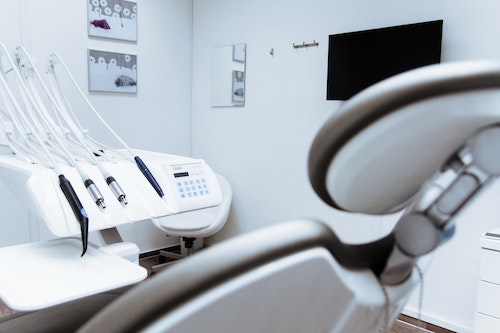The Preparedness and Response of European Health Systems: How Professionals, Policymakers, and Citizens Play a Crucial Role
The ongoing COVID-19 pandemic has put an enormous strain on health systems worldwide. As the virus spread with astonishing speed, the preparedness and response of European health systems were put to the test. In this article, we will explore the challenges faced by health professionals, the role of policymakers, and the importance of citizen involvement in ensuring the resilience of European health systems.
Introduction
European health systems have long been lauded for their comprehensive coverage and high-quality care. However, the unprecedented nature of the COVID-19 pandemic brought about unforeseen challenges, amplifying the need for preparedness and rapid response. This article aims to shed light on the collective efforts undertaken by health professionals, policymakers, and citizens in navigating this crisis.
The Role of Health Professionals
Health professionals across Europe have demonstrated unwavering dedication and commitment as they encountered the emerging threat to public health. From the outset of the pandemic, they have been at the frontlines, providing essential care, and working tirelessly to save lives. Their expertise, collective knowledge, and adaptability have been crucial in responding swiftly to the evolving situation.
However, the challenges faced by health professionals during the crisis have been immense. Shortages of personal protective equipment (PPE), testing kits, and medical supplies strained their ability to effectively combat the virus. Fatigue and mental health issues amongst healthcare workers have become increasingly prevalent due to the prolonged impact of the pandemic. Addressing these challenges and ensuring the well-being of health professionals should remain a top priority for policymakers and healthcare institutions.
The Role of Policymakers
Policymakers have been tasked with the challenge of making swift decisions to protect public health and strengthen the European health systems during this crisis. The pandemic has emphasized the need for effective coordination and collaboration between governments, healthcare institutions, and international organizations.
Policymakers have been instrumental in devising public health guidelines, implementing testing and vaccination strategies, and allocating resources to areas under significant strain. The health systems’ preparedness was put under scrutiny as they grappled with the surge in the number of cases and the subsequent strain on hospitals and intensive care units. Policymakers play a key role in ensuring that health systems have the necessary infrastructure, equipment, and personnel to effectively respond to future crises.
The Importance of Citizen Involvement
The COVID-19 pandemic has underlined the crucial role that citizens play in supporting the preparedness and response of European health systems. Compliance with public health measures, such as social distancing, wearing masks, and adhering to lockdown restrictions, has been essential in slowing the spread of the virus.
Moreover, citizen engagement in contact tracing efforts and participation in vaccination campaigns have played a pivotal role in mitigating the impact of the pandemic. By staying informed, following guidelines, and being proactive in seeking necessary healthcare, citizens can contribute significantly to the resilience of the health systems.
Lessons Learned and Moving Forward
The COVID-19 pandemic has exposed the vulnerabilities within European health systems, but it has also provided an opportunity to learn and strengthen them. Investments in infrastructure, research, and development must remain a priority to enhance preparedness for future crises. Additionally, a focus on mental health support for health professionals and increased training on pandemic response will help build a more resilient healthcare workforce.
Collaboration at local, regional, and international levels is essential for a comprehensive and effective response. Information sharing, coordinated strategies, and mutual support among European countries are vital in responding promptly to emerging threats.
Health systems must also emphasize the importance of long-term planning, focusing not only on clinical care but also on preventive measures, early detection, and preparedness for future pandemics. Continuous evaluation and improvement of the response capabilities will foster a more agile and adaptive healthcare system.
Conclusion
The COVID-19 pandemic has presented European health systems with unprecedented challenges, but it has also highlighted their resilience and the dedication of health professionals. Policymakers and citizens have responded to the call of duty, playing significant roles in the preparedness and response efforts.
Moving forward, it is necessary to learn from the experiences of the pandemic and implement measures that strengthen health systems’ preparedness and response capabilities. Through collective action, collaboration, and individual responsibility, we can ensure that European health systems remain adaptive, robust, and capable of protecting public health even in the face of future crises.



